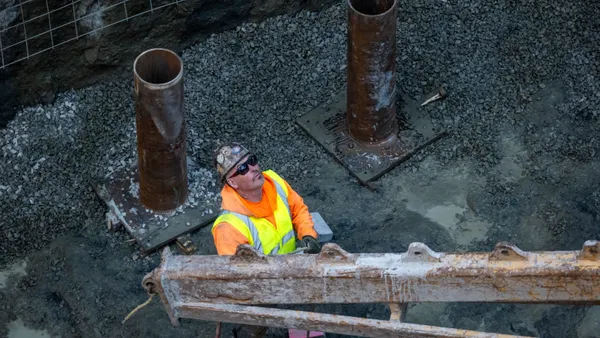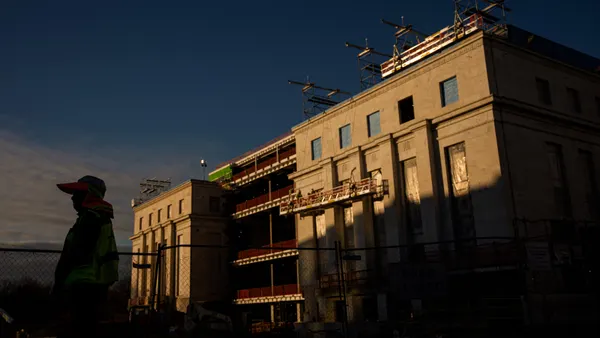Dive Brief:
-
A recent LendingTree survey revealed that student loan debt has not only prevented a significant number of millennials from purchasing a home but it has also influenced several other areas of their lives as well.
-
Respondents (63.3%) born between 1980 and 1995 said they either had student debt or expected to owe on student loans when they graduate, and more than 46% said they were currently carrying student debt. The average loan payment of $317 per month, they said, had not only kept them from buying a house (45.31%) but had stopped them from traveling (53.27%), saving for retirement (38.07%) and buying a car (44.74%).
- Lending Tree also discovered that more than half of survey respondents felt "financial regret" related to their college experience, with almost 64% wishing they had chosen a different school, a more affordable school or an alternate field of study.
Dive Insight:
Millennial student debt load has long concerned the housing industry and is widely considered to be a reason why that demographic has a lower percentage of homeownership than other cohorts did at the same age. Earlier this year, the National Association of Home Builders reported that, as of 2014, more than 20% of millennials ages 25 to 34 (8.8 million), lived with their parents or other relatives, an increase from 12% (4.6 million) in 2000. If those millennials purchased homes in the numbers necessary to reach 2000 levels, the NAHB said that there would be two million more households.
Certainly factors such as choosing to marry and start a family later have a lot to do with that, but student debt has long been considered a factor in their decision not to buy a home as well.
Millennials in the U.S. are earning an average net monthly salary of $2,800 a month, with 11.3% of that going to student loan payments, according to LendingTree. According to an August Redfin survey, 32% of millennials were worried about housing affordability, if and when they decide to purchase a home, and more than 10% were concerned that they wouldn't be available to come up with a down payment. Last month, the National Association of Realtors reported that fewer than two in 10 homebuyers across all ages, incomes and backgrounds were aware of low down payment options that would require less than 10% of the home's purchase price up front













